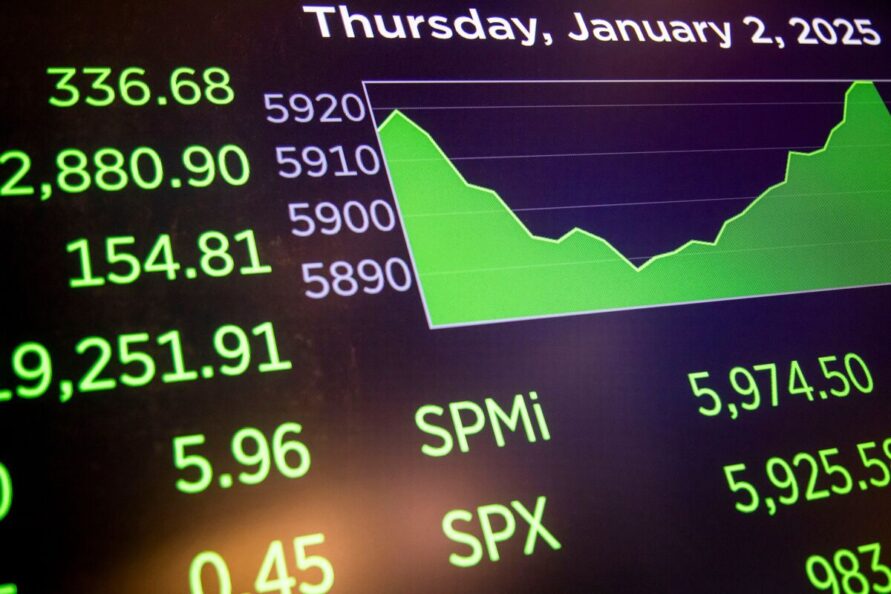Exploring the Future: Will AI Drive Productivity Growth, or Are We Facing a Bubble?
In an era characterized by unprecedented technological advancements, the debate surrounding artificial intelligence (AI) and its potential impact on productivity has intensified. As the financial world watches closely, questions arise: Will AI usher in a new wave of productivity growth, or are we merely witnessing the rise of a speculative bubble? This article aims to dissect these key issues, along with broader considerations regarding global market dynamics and economic questions that may shape our financial landscape.
The Promise of AI-Driven Productivity
Proponents of AI argue that the technology has the potential to dramatically enhance productivity across various sectors. AI applications can automate routine tasks, provide data insights, and facilitate more efficient production processes. This could lead to a transformational increase in output, similar to the effects observed during previous technological revolutions. Leading economists and tech analysts have suggested that, if properly integrated into workflows, AI could become a catalyst for economic growth.
However, doubts linger regarding whether this boom is sustainable in the long term. Concerns are being raised about the possibility of an AI bubble — a scenario in which excessive investment in AI technology leads to inflated valuations without corresponding real-world productivity gains.
US vs. Global Equity Valuations
Another critical aspect of this discussion is the disparity between US and international equity valuations. Historically, the United States has maintained higher equity multiples compared to counterparts in the UK, EU, and emerging markets. This leads to speculation about whether the valuations will converge, and if so, whether it will result in lower US valuations or increased returns in international markets.
US Exceptionalism Under Scrutiny
The concept of US exceptionalism — the idea that the United States will always perform better economically than other nations — is being scrutinized. If the potential of AI is realized globally, one could argue that this might equalize economic opportunities, reducing the advantage once held by the US. Yet, the uncertainty over whether national economies can leverage AI technology as effectively raises the question of whether this exceptionalism will endure.
Inflation and Interest Rates: A Stalemate?
The current economic climate also raises questions about inflation and interest rates. With the world grappling with economic turbulence, many economists are pondering what the future holds. Central banks face the challenge of managing inflation without stifling economic growth. Consequently, how AI affects productivity could directly influence these dynamics. A genuine productivity boom might help alleviate inflationary pressures, leading to more stable interest rates.
The Globalization Dilemma
The state of globalization also comes into focus amidst these discussions. In recent years, globalization has faced headwinds, exacerbated by geopolitical tensions and the COVID-19 pandemic. As advancements in AI may lead to greater efficiencies, there are questions about whether this technology could rejuvenate global trade, or if protectionist sentiments will continue to dictate economic policy. The effectiveness of countries like Germany and France in navigating this landscape will also be critical as they seek to recover economically post-pandemic.
The Argentina Comparison
A striking contention in economic discourse is the notion that "we are all Argentina now,” reflecting concerns about economic instability and the pressures some nations face. Emerging economies, in particular, have grappled with significant challenges, putting their futures in jeopardy amid global uncertainties. The implications of AI could either exacerbate these conditions or provide pathways for recovery and growth.
Conclusion: Navigating the Unknown
As the financial world teeters on the brink of potential transformative change, the future remains uncertain. The promise of an AI-driven productivity boom is enticing, but the risks of a speculative bubble cannot be overlooked. Amid the backdrop of global economic dynamics, future equity valuations will undoubtedly influence investor sentiment across the world.
The coming months will be critical in observing how these factors unfold, particularly whether nations can harness AI’s power to bolster productivity sustainably. The decisions made now could significantly reshape the economic landscape, impacting everything from personal investments to national recovery forecasts. Keeping an eye on these details will be essential for stakeholders aiming to navigate the evolving financial realm.









